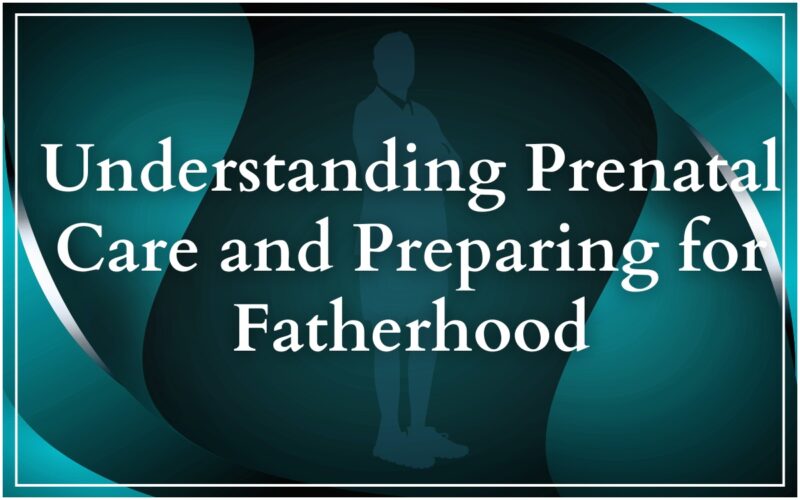You’ve seen the positive test. You’ve been through the initial rollercoaster of excitement (and maybe a little fear). Now it’s time to prepare.
You have roughly 9 months to get a whole lot done, including preparing the nursery, stocking up on diapers, and wrapping up loose ends at work so you can take parental leave. All of this comes in addition to supporting your partner as she endures maternity.
Fatherhood doesn’t start when the baby comes home from the hospital. Prenatal care is a crucial aspect of understanding and preparing as a parent. Research shows that a father’s involvement during the prenatal period significantly impacts the well-being of both the child and the mother.
What is Prenatal Involvement?
Prenatal involvement refers to the activities and support fathers provide during their partner’s pregnancy and around the time of their child’s birth. This can include discussing the pregnancy, attending prenatal doctor visits, participating in childbirth classes, being present at the birth, and visiting the baby in the hospital.
Why is Prenatal Involvement Important?
- Enhanced Father-Child Relationship: Fathers who are involved during pregnancy tend to be more engaged and provide higher-quality care to their children after birth. This involvement includes activities like reading to the child, feeding, diapering, and soothing.
- Better Parenting Quality: Prenatal involvement is linked to more positive post-birth parenting behaviors. Fathers who attend childbirth classes or are present at the birth are more likely to engage in nurturing and cognitively stimulating activities with their children.
- Stronger Partner Relationships: Being involved during pregnancy can lead to more stable and positive relationships with partners. Fathers who support their baby’s mother during pregnancy often develop higher levels of commitment and are more likely to stay with their partners.
- Positive Personal Outcomes: Fathers who participate in prenatal care often develop a stronger commitment to their fatherhood role, which can lead to a more positive self-identity. Additionally, involved fathers tend to have better employment outcomes and are less likely to engage in risky behaviors.
How Can Dads Be Involved Prenatally?
Here are some practical ways dads can be involved during pregnancy:
- Attend Doctor Visits: Go with your partner to prenatal appointments. This shows support and allows you to be informed about the pregnancy’s progress.
- Discuss the Pregnancy: Regularly talk with your partner about how the pregnancy is going. This communication strengthens your bond and helps you understand what she is experiencing.
- Feel the Baby Move: Take the time to feel the baby move. This simple act can deepen your connection to your unborn child.
- Listen to the Heartbeat: Attend ultrasound appointments where you can hear your baby’s heartbeat. This can be a profound bonding experience.
- Participate in Childbirth Classes: Though less common, attending childbirth classes can prepare you for the birth and help you support your partner during labor.
- Prepare for the Baby: Buying things for the baby and setting up the nursery are tangible ways to show your involvement and excitement.
The Impact of Commitment
Fathers who are committed to their partners and the pregnancy are more likely to be involved prenatally. This commitment often leads to more significant involvement with their children and partners after birth. This is particularly important for unmarried fathers, who face a higher risk of becoming uninvolved. Nonresident fathers who were involved during pregnancy are more likely to stay engaged in their child’s life.
There are countless benefits to prenatal involvement for fathers, but it is important to not beat yourself up over what you cannot be a part of. Remember – It’s not about what you can’t do, but about doing what you can. Make the ultimate goal to be the best partner and father and grow a strong bond with your children, knowing that it will pay off as the child grows.









